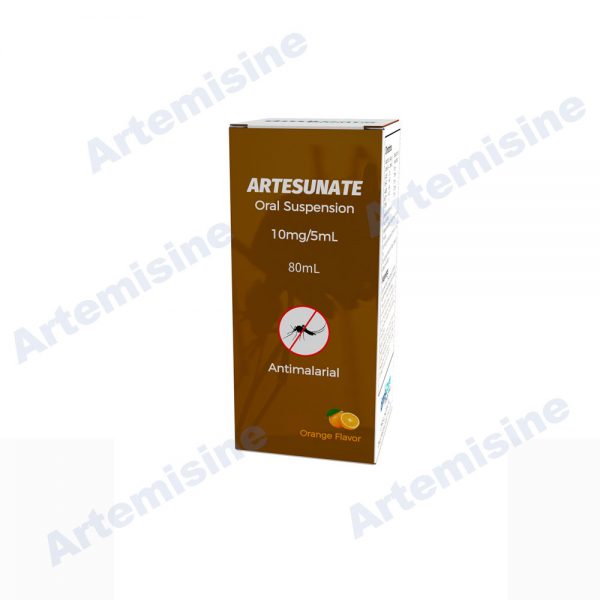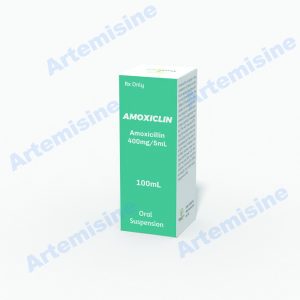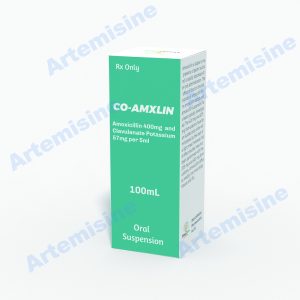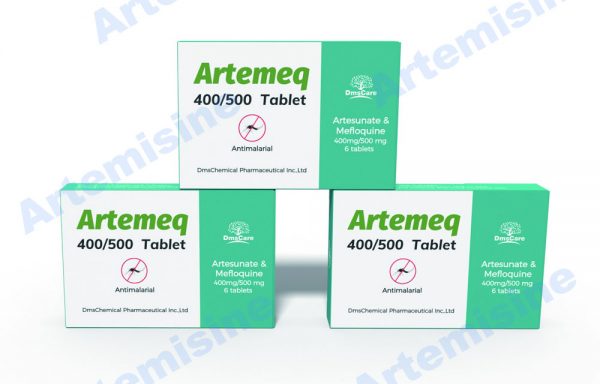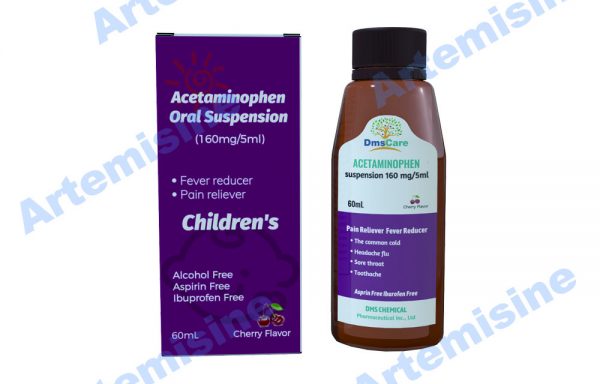Product Description
Package:
- Artesunate 10mg/5mL,80 mL bottle
Artesunate is a medication used to treat malaria. The intravenous form is preferred to quinine for severe malaria. Often it is used as part of combination therapy, such as artesunate plus mefloquine. It is not used for the prevention of malaria. Artesunate can be given by injection into a vein, injection into a muscle, by mouth, and by rectum.
Medical uses
Artesunate is the first-line treatment for children or adults with severe malaria, usually in combination with another antimalarial drug. There is moderate-quality evidence that treatment with artesunate plus mefloquine is superior to treatment with artesunate plus amodiaquine or artesunate plus sulfadoxine-pyrimethamine. Artemisinin-based combination therapy may be used by mouth in persons that can tolerate it after 24 hours by injection.
Artesunate is preferred over parenteral quinine for severe malaria treatment. Artesunate was shown to prevent more deaths from severe malaria than quinine in two large multicentre randomized controlled trials from Africa[19] and Asia. A subsequent systematic review of seven randomized controlled trials found this improvement in survival rates to be consistent across all trials.
Artesunate’s efficacy is comparable to that of artemether, another artemisinin derivative, in treating adults for severe malaria caused by Plasmodium falciparum, though artesunate clears more parasites initially. Artesunate combination drugs have a number of advantages over artemether-based drugs in terms of its uptake and administration routes and may be more effective in treatment of severe and complicated malaria in children.
Artesunate is also used to treat less severe forms of malaria when it can be given orally. It has activity against P. ovale, P. malariae, and severe P. knowlesi.
Artesunate + sulfadoxine/pyrimethamine for treatment of P. vivax is not recommended due to high rates of resistance.
While artesunate is used primarily as treatment for malaria, there is some evidence that it may also have some beneficial effects in Schistosoma haematobium infection, but has not been evaluated in large randomized trials.
Artesunate is used as the treatment of choice for severe malaria by the World Health Organization (WHO) over quinine.
Pregnancy
When given in the second or third trimesters of pregnancy, no artesunate-related adverse pregnancy outcomes have been reported. However, there is insufficient evidence regarding the safety of artesunate use in the first trimester of pregnancy. The WHO recommends that artesunate use for severe malaria in the first trimester should be based on the individual risks versus benefits. In absence of other viable treatment options, artesunate may be used.
Children
Artesunate is safe for use in children. Artesunate + sulfadoxine/pyrimethamine should be avoided in the newborns due to sulfadoxine/pyrmethamine effects on bilirubin. Parenteral artesunate dosing for treatment of severe malaria in children less than 20 kg should be higher than that of adults in order to increase exposure. When artesunate cannot be given orally or intramuscularly due to an individual’s weakness or inability to swallow, rectal administration may be given as pre-referral treatment as long as parenteral administration is initiated after transfer to a more advanced facility.
